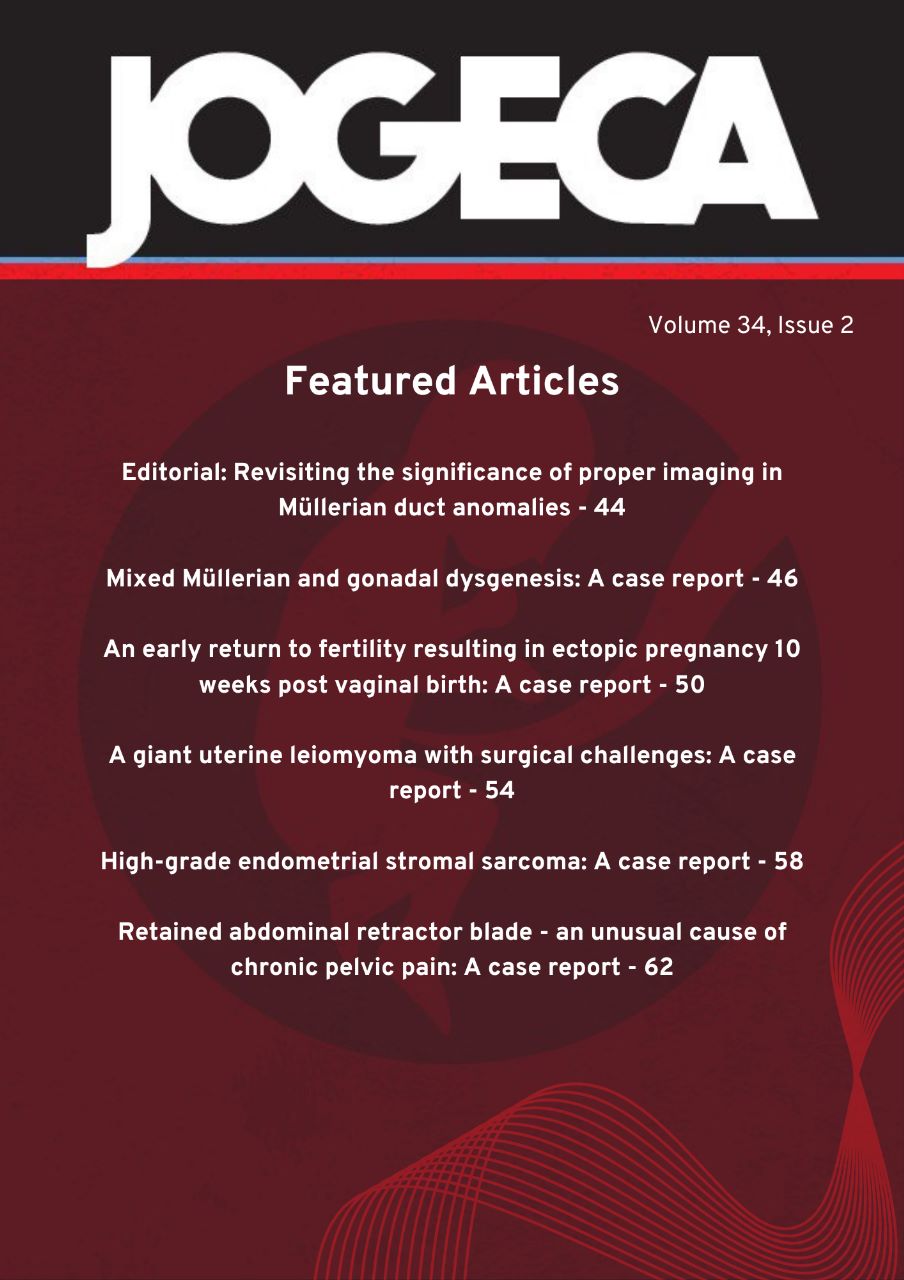A person-centred approach to female genital mutilation prevention: Results of a multi-country, cluster-randomized trial
DOI:
https://doi.org/10.59692/jogeca.v36i1.300Abstract
Background: Healthcare providers are influenced by prevailing social norms. Addressing their underlying values on female genital mutilation (FGM) as well as their knowledge and skills in person-centred care could enable them to be effective change agents in the prevention of FGM. However, there is limited evidence on what works to achieve this.
Objective: To test the effectiveness of an intervention involving person-centered communication (PCC) for FGM prevention in antenatal care (ANC) settings in Guinea, Kenya, and Somalia.
Methods: A cluster randomized implementation study was conducted between August 2020 and September 2021. Sixty ANC clinics were randomized to the intervention and control arms in each country. ANC providers from the intervention arm received training to build their knowledge of FGM, question their FGM-related values and attitudes, and conduct FGM prevention counseling using a PCC approach. Data were collected at baseline, three months, and six months using tablets and were analyzed using multilevel regression models.
Results: Over six months, 222 ANC providers (n=105 intervention; n=117 control) were followed up from 163 clinics. In month six, 1,630 new clients (n=820 intervention; n=810 control) were interviewed after their ANC clinic visit. ANC providers in the intervention arm were more likely than providers in the control arm to apply the PCC approach (p<0.001), communicate effectively about FGM prevention (p<0.05), and have higher FGM knowledge scores (p=0.005). Provider attitudes against FGM were consistently high in both arms across all time points. After the ANC clinic visit, a higher proportion of ANC clients in the intervention arm than in the control arm reported a change in their support for FGM (52% vs. 29%, p<0.001), were strongly opposed to FGM (61% vs. 47%, p<0.001), reported that they did not intend to cut their daughters (84% vs. 70%, p<0.001), and wanted to be actively engaged in FGM prevention (83% vs. 66%, p<0.001).
Conclusion: This study provides robust evidence that training primary care providers to challenge their FGM-related values and attitudes and build their interpersonal communication skills using a person-centered approach is effective for strengthening FGM prevention in the health sector.
Study impact and recommendations: This is the first randomized controlled trial to provide evidence on the effectiveness of a social norm change approach for FGM prevention in the health sector. The strength of the evidence should inform the scale-up of this approach to ensure effective delivery of FGM prevention services at the primary care level.
Downloads
Published
How to Cite
Issue
Section
Categories
License
Copyright (c) 2024 The Authors.

This work is licensed under a Creative Commons Attribution 4.0 International License.




